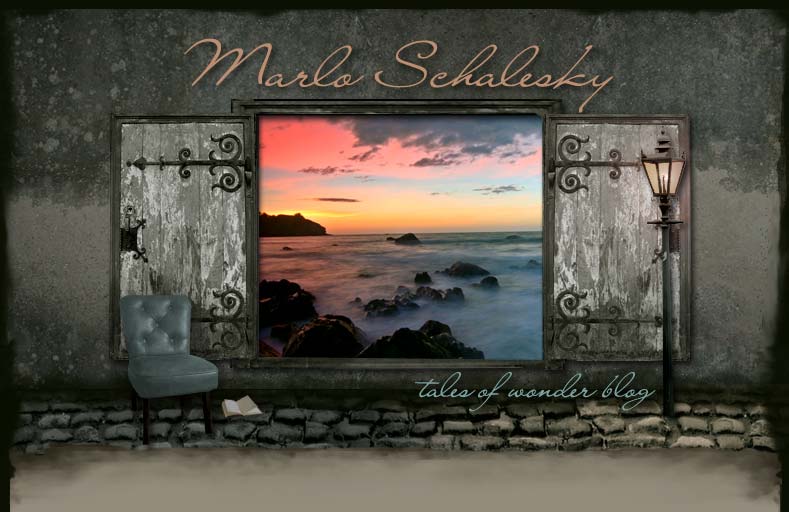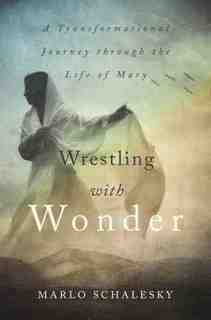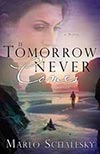
Hi Friends,
Here's the new book I have to tell you about this week:
About Letters in the Attic
Up in her grandmother’s attic in Stony Point, Maine, Annie Dawson finds a stack of old letters from her childhood friend Susan Morris. Annie remembers Susan fondly and would like to get back in touch, but nobody seems to know what’s become of her. Her friends at The Hook and Needle Club aren’t much help either. All they remember is that Susan left town more than twenty years ago to marry a very wealthy man, but none of them is quite sure who he was. And Annie can find no record of any marriage.
The more Annie searches, the more she begins to wonder if something has happened to Susan. Something bad.
Excerpt from Letters in the Attic:
Annie stepped out of the library door, took a deep breath and then scurried across Oak Lane to The Cup and Saucer. The lunch crowd was gone, and Annie was glad to see that her favorite corner table was empty.
Peggy looked up from the counter where she was refilling salt shakers. “Hi, Annie. What’ll it be?”
“Coffee to start with. I don’t know what I want to eat yet, but I’m starved.”
It took just a minute for Peggy to bring her a steaming cup and a little pitcher of cream. “Everything okay?”
“Yeah. It is.” Annie sighed. “Some people just have it rough, you know.”
“Sometimes you’re the windshield, sometimes you’re the bug.”
Peggy gave her a menu and a wry grin, and Annie answered with one of her own.
“I know, but some people get a lot of trouble all at once.”
“Anybody I know?”
“Susan Morris, the one we were talking about at the club meeting. I’ve been over at the library doing some research. Mary Beth was right about her parents being killed in a car wreck, and I found out that the aunt she was living with in New York died not very long before that.”
“That’s too bad.” Peggy leaned against the other side of the booth. “And she was just out of college then? What a shame. What about that rich guy? Did you find out anything about him?”
“I haven’t found any marriage records for Susan yet. So far, Prince Charming is still a complete mystery.”
“Did somebody say Prince Charming?” A lanky guy in a policeman’s uniform got up from his stool at the lunch counter and sauntered over to Annie’s table. “Are you looking for me, ma’am?”
Peggy pursed her lips. “Oh, go sit down and drink your coffee, Roy, and let the adults talk.”
“Now, that’s no way to treat your elders, Peg. Why don’t you introduce me to your friend here? Not that everybody in Stony Point hasn’t heard of pretty Annie Dawson.”
Annie didn’t know whether to be flattered or annoyed. She settled for skeptical. “Have they?”
“Yes, indeed.”
Peggy snorted. “This is Roy Hamilton. Obviously one of Stony Point’s finest.”
“I haven’t seen you around town,” Annie admitted, shaking the hand he offered. “Are you new here?”
“Just hired on. Chief Edwards was down a man when Callahan retired. I was working in Newcastle until a little while ago, but I heard Stony Point was a pretty attractive place to hire on.” He grinned at Annie. “Very attractive, if you ask me.”
Annie refrained from rolling her eyes. “Do you live here in town?”
“I’m renting a beach house on Ocean, just north of Elm.” His grin widened. “I guess that makes us neighbors.”
“You must be at Mr. Cruz’s. The little house with white trim and a porch swing?”
“That’s the one. And, of course, everybody knows about Grey Gables. That’s a big place for one little lady by herself.”
“I don’t live alone.” Annie pretended not to notice the smirk on Peggy’s face.
“You don’t?” Roy’s sandy eyebrows met in the middle of his forehead. “I heard you were a widow.”
Annie smiled sweetly. “I am.”
“And all your family lives back in Texas, right?”
“They do.”
Roy chuckled. “You’ve got a dog.”
“A cat,” Annie admitted. “But she’s the jealous type.”
“Hmmm. Maybe I’ll have to try to win her over with some fresh salmon. We lawmen aren’t allowed to accept bribes, but that doesn’t mean we can’t offer a few.”
She couldn’t help laughing. “I’ll leave that between you and Boots.”
“Of course, if you’d like to–” A beep from the cell phone hooked to his belt drew his attention. “Excuse me a second.”
He walked back over to the counter to take his call, and Peggy shook her head.
“Sorry about that, Annie. He’s just not one to take a hint.”
“Poor guy’s probably just lonely. It’s hard when you’re new in town. I know.”
“I beg your pardon, ladies.” Roy came back to Annie’s table. “I’ve got business to see to, Annie, but I hope, now that we’ve been properly introduced, that I’ll see you again.”
“Stony Point’s a small place.” Annie kept her voice light and impersonal. “So that’s probably pretty likely.”
“Us being neighbors and all.” Roy took his mirrored sunglasses from his shirt pocket. “If you ever need anything, you come see me. Thanks for the coffee, Peg.”
He handed Peggy a folded bill and went out the front door. Annie watched as he took long strides across Main Street towards the Town Hall.
“Well, he’s not shy.”
“Just a nuisance more than anything else.” Peggy made a sour face. “He’s always asking for his ‘Police Discount.’ Hardy-har-har.” Peggy unfolded the bill, brightening when she saw it was a five. “But he does tip well.”
Annie chuckled, and Peggy pocketed the money.
“Anyway, back to what we were talking about earlier, I’ve been asking just about everybody I’ve seen if they know anything about Susan Morris, but nobody seems to remember much about her. Sorry. I really would have thought you’d find something about her marriage.”
Annie sighed. “That’s where I hit a brick wall. Nothing on any Susan Morris getting married to anyone anywhere in the State of Maine anytime between nineteen-eighty-five and two-thousand-five. Absolutely nothing.”
“Hmmmm. I guess it’s possible she was married somewhere out of state.”
“I guess so.” Annie took a sip of coffee. “That proverbial haystack just got a lot bigger. Are you sure you never heard anything about this man she was supposed to be married to?”
“Me? I was way too young to pay any attention to that kind of thing back then. Maybe Mary Beth will have thought of his name by the time you see her next.”
“Or that shoe company he had. It was shoes, right?”
“That’s what she said.”
Annie bit her lip. “I guess I could search for Maine shoe manufacturers and see what I come up with.”
“But if she wasn’t married in the state, maybe he didn’t live here either. His company could have been in Virginia or New York or Timbuktu.”
Annie propped her chin on her hand. “Yeah, I know.”
“Hey, I forgot.” Peggy tapped the tabletop with one bright pink nail. “I have some good news for you. I asked Wally about the other guy, the handyman. His name is Tom Maxwell and Wally says he’d do you a good job if you’re in a hurry to start on your bathroom.”
“Actually, I’d really rather have Wally do it. I know the kind of work he does, and that way it helps you out, too. But Mary Beth sounds like she doesn’t want to wait much longer to get her basement organized. I’m sure she’d like the referral.”
“I appreciate you wanting to hire Wally. I would like to see us get a little ahead for once.”
“It’s pure selfishness on my part. He did such a nice job on my kitchen, I don’t want to use anyone else.” Smiling, Annie handed the menu back to Peggy. “I hope you still have that shrimp chowder you had on your special today. I need something to warm me up.”
“Coming right up.”
***
The chowder was delicious, a hearty cream base packed with shrimp, bacon and potatoes, and things looked a little bit brighter by the time Annie pulled up in front of Grey Gables.
Alice waived from the front porch of the carriage house and then scurried over to the car. “Find out anything?”
“You’re just as bad as Peggy. Come in out of the cold and I’ll tell you about it.” Annie unlocked her front door and picked up the stack of mail lying just inside. “I have some chicken and veggies in the crock pot if you want to eat later on.”
“That sounds a lot better than the leftover pasta I was going to have. Don’t mind if I do.”
There was a patter of paws on the stairs and then Boots hurried into the room, rubbing against Annie’s legs to make her demands plainly known.
“All right. All right. You first.” Annie handed Alice the obituary about Susan’s aunt. “That’s all I found out. Pretty much the end of the story as far as tracking Susan through her. Be right back.”
When she returned from feeding the cat, Alice returned the article to her.
“End of story all right. I’m sorry.”
“Now I just have to figure out how to track Susan down through her marriage in forty-nine other states.”
“Don’t forget the territories, the District of Columbia and all the foreign countries in the world.”
“Great. Thanks.” Annie sat on the couch beside Alice and started shuffling through the mail. “Bills, bills and bills, it looks like. What did you decide about the harvest banquet?”
“It’s the pumpkin bread again.” Alice sighed dramatically. “My public demands it.”
“You know you could always–” Annie frowned at the envelope she held. “I wonder what this is. It couldn’t have come in the mail. There isn’t an address.”
Alice shrugged. “Maybe somebody brought it by. What’s in it?”
“Let’s see.”
Annie slit open the envelope and took out the single sheet of paper, half smiling as she looked at it. The letters were cut from the newspaper the way they did in old gangster movies. It had to be a joke, right?
There was concern in Alice’s eyes. “What is it?”
Annie let her read the message for herself.
FORGET ABOUT SUSAN AND MIND YOUR OWN BUSINESS.
About DeAnna Julie DodsonDeAnna Julie Dodson is the author of In Honor Bound, By Love Redeemed and To Grace Surrendered, a trilogy of medieval romances, and Letters in the Attic, a contemporary mystery in the Annie’s Attic series. She is currently working on The Drew Farthering Mysteries, a new series of books set in 1930s England. A graduate of the University of Texas at Dallas, she currently lives in North Texas with four spoiled cats and, when not writing, enjoys quilting, cross stitch and NHL hockey.
Interview:
Tell us about your latest book.
I’m very excited about the release of Letters in the Attic, an Annie’s Attic Mystery. Letters is the fourth book in this new series about Annie Dawson, a widow from Texas who goes up to clean out and sell her late grandmother’s Victorian house in Maine only to find a whole attic full of intriguing and sometimes mysterious objects. The series particularly interested me because Annie and her friends are all needleworkers – knitters, crocheters, quilters, cross-stitchers – and I’ve been interested in needlework for as long as I can remember.
Letters in the Attic came out this summer from DRG.
What's your favorite part of the story?I think I enjoyed writing Officer Roy Hamilton the most. I actually didn’t think much about him at first. He was meant to be a very minor character who was there just to take fingerprints. Soon, though, he let me know that that was not going to be enough for him. He put on his mirrored sunglasses and sauntered up to me and said he just knew I had something more important for him to do. And darned if he wasn’t right!
What do you hope your readers will get out of the story?
I think the most important thing is that there is freedom in truth. Hiding from it only weighs you down and keeps you prisoner. Facing the truth breaks those chains and breaks the hold of those who would use the fear of that truth against you. Once it’s in the light of day, whatever it is you’re hiding from, it loses its power.
Tell us a little about your writing. Is there any one thing or reference you keep handy when writing? Anything you kept around for this particular book?
Of course, the greatest reference tool these days is the internet. It’s made research so much easier, though you do have to be careful of which sources you trust. Still, I like to have some actual reference books handy when I’m writing. I especially like The Well-Tempered Sentence by Karen Elizabeth Gordon and Eats, Shoots and Leaves by Lynne Truss for solving those thorny grammar and usage questions. They’re both extremely practical while appealing to my sometimes-off-the-wall sense of humor.
For Letters in the Attic, of course, my best friend was the packet of series information the publisher gave me so my book would mesh with the others in the series. Since writing this kind of book was new to me, this packet was really a life saver.
Who do you rely on for help when writing?Writing can be a very lonely and isolated job. And the worst part of it is that, once you’ve written something, you can never see it the way a new reader will see it. Obviously, you know what you meant to say when you wrote it, but does it really say that? Really? You just have to have a pre-reader look it over, someone who will speak the truth in love and tell you honestly what works and what doesn’t.
I met author Robin Hardy (The Chataine’s Guardian and many, many more) when I took a “Writing Christian Fiction” class at the local community college. At that point, I didn’t imagine I would ever actually be published. She was so gracious and so kind to this very green wannabe writer. She actually read through my 250,000-word manuscript (the one that became In Honor Bound) and showed me how to improve it and, more importantly, how I could cut it down to a manageable length. Now, years later, she’s still my first and best pre-reader and a terrific friend. She catches inconsistencies and stupid mistakes and tells me when something just falls flat. I would so much rather hear it from her than from my editor or, worst of all, from my readers. I’m so blessed to know her!
Aside from writing, what takes up most of your time?
I’m addicted to cross-stitch and quilting. I have just a ton of projects yet to be done because I want to do everything. That’s one of the reasons I have enjoyed working on this series so much. I can relate to the ladies in the Annie’s Attic Mysteries who love to make beautiful things by hand.
What advice would you give to an unpublished writer?I suppose there are writing prodigies out there, people who can just sit down and write perfection from word one, but I’ve never met anyone like that. The only way I know to succeed in writing is to write. And write. And write. And read a lot. And write more. I’ve heard it said that it takes about ten thousand hours to really master the craft of writing. Shortcuts don’t work. Put in your time. There’s really no other way to end up with a product that will make you proud.
But while you’re putting in your time, don’t get discouraged. Really learning to write is a long, arduous process. It’s usually a thankless job. Lots of people say they want to write. Very few stick with it long enough to actually become writers. Writing is a lonely business. It can be a very discouraging one. But if it’s something God has called you to do, there is nothing else as satisfying. Stay the course. Learn your craft. Write the book that’s on your heart. God will use it where He sees fit.
Website: http://www.deannajuliedodson.com
Blog: http://www.deannajuliedodson.com/blog/
Purchase Letters in the Attic: http://www.anniesmysteries.com






 Hi Friends,
Hi Friends,








